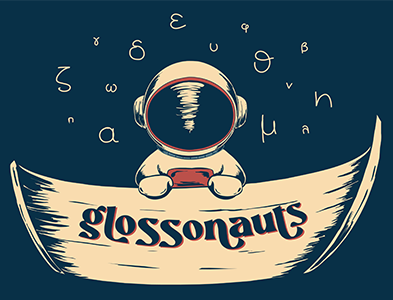
Greek is a beautiful language, rich in history and culture. Whether you’re planning a trip to Greece, have Greek friends, or just want to expand your linguistic knowledge, learning how to greet someone in Greek is a great first step. Here’s a guide to saying “hello” in Greek and a bit more about Greek greetings.
Γειά σου (Yia sou) – Hello
This is the most common way to say “hello” in Greek. “Γειά” (Yia) means “health” and is similar to the Italian “ciao.” The phrase can be used in a variety of situations. You can also use just “γεια” or If you want to be more formal you can say “Γεια σας”.
Χαίρετε (Chérete) – Hello
A more formal way to say hello in Greek is “χαίρετε”. In younger people, it’s not so popular but it’s still in use.
Example: “Χαίρετε, κύριε διευθυντά!” (“Hello, Mr. Director!”)
Other ways to greet someone in Greek

Πώς πάει; (pos pai) – How’s it going?
This is a casual way to ask someone how things are going. It’s often used among friends or peers and can start a relaxed conversation.
Τι λέει; (ti lei) – What’s up?
This phrase is another informal greeting that translates to “What’s up?” It’s commonly used among friends or in a casual setting.
Example: “Επ, Στέλιο, τι λέει;” (“Hey, Stelios, what’s up?”).
Τι γίνεται; (ti ginete) – What’s happening? / How’s it going?
This is a variation of “What’s up?” and is used similarly to “Τι λέει?”. It’s another friendly and informal greeting.
How to Say Goodbye in Greek

Just as greetings are essential in any language, knowing how to say “goodbye” is equally important. In Greek, there are several ways to bid farewell, depending on the context, time of day, and level of formality. Here’s a guide to help you master the different ways to say “goodbye” in Greek.
Γειά σου (Yia sou)
Interestingly, this phrase is versatile and can also be used to say “goodbye”.
Αντίο (Adío)
This is the most direct translation of “goodbye” in Greek. It’s used in both formal and informal situations, though it can sometimes sound a bit final, similar to saying “farewell” in English. Use this when you don’t expect to see the person again soon.
Τα λέμε (Ta léme)
This is my favorite one. It means “See you” and is commonly used when you expect to see the person again soon. It’s informal and can be used among friends and acquaintances.
Μιλάμε (Miláme)
This phrase means “We’ll talk” and is a casual way of saying “Talk to you later” or “Catch you later.” It’s often used among friends and can imply that you’ll be in touch soon, either by phone or in person.
Καλή συνέχεια (Kalí sinécheia)
This phrase means “Good continuation” and is used to wish someone well as they go about the rest of their day. It’s a common farewell in both casual and professional settings.
Φιλάκια (Filákia)
This translates to “little kisses” and is an affectionate way to say goodbye, especially in texts or phone calls. It’s informal and used among close friends, family members, or romantic partners. It’s similar to saying “Kisses!” in English and adds a sweet, warm touch to your farewell.
And if you’re ready to start your Greek journey, our Greek crash course is the perfect way to begin. You’ll break the Greek code quickly and enjoyably, making learning both fun and effective!
Time Greetings

In Greek, time-based greetings play an important role in everyday conversations. These greetings not only help you start and end conversations appropriately but also reflect politeness and respect for the time of day.
Καλημέρα (Kaliméra) – Good Morning
“Καλημέρα” is used from early morning until around noon. It’s a versatile and polite way to start a conversation, whether you’re greeting a friend, a colleague, or a stranger.
Καλησπέρα (Kalispéra) – Good Afternoon/Evening
“Καλησπέρα” is used from the early afternoon until the evening, typically from around noon until the sun sets. It’s the go-to greeting when you meet someone later in the day.
Καλό απόγευμα (Kaló apógevma) – Have a Good Afternoon
“Καλό απόγευμα” is not typically used to start a conversation; it’s more of a farewell phrase. However, it can be used when you know the person is about to head into the afternoon hours of their day.
Καλό βράδυ (Kaló vrádi) – Have a Good Evening
“Καλό βράδυ” is a warm and polite way to say goodbye in the evening. It’s commonly used when parting ways after work, leaving a dinner, or saying goodbye to friends or family. It’s a nice way to wish someone a pleasant evening.
Καληνύχτα (Kaliníhta) – Good Night
Unlike “Καλημέρα” and “Καλησπέρα,” “Καληνύχτα” is rarely used to start a conversation. It’s generally reserved for saying goodbye or ending interactions late in the evening or at night.
Mastering Greek greetings and farewells is more than just learning the words—it’s about understanding the cultural context and the appropriate time to use each phrase. So, next time you find yourself in a Greek-speaking environment, try out these greetings and farewells….
Aaaand if you truly want to start mastering Greek in style, we recommend starting with our Greek Crash Course.

See you in the next one,
Ta leme







0 Comments